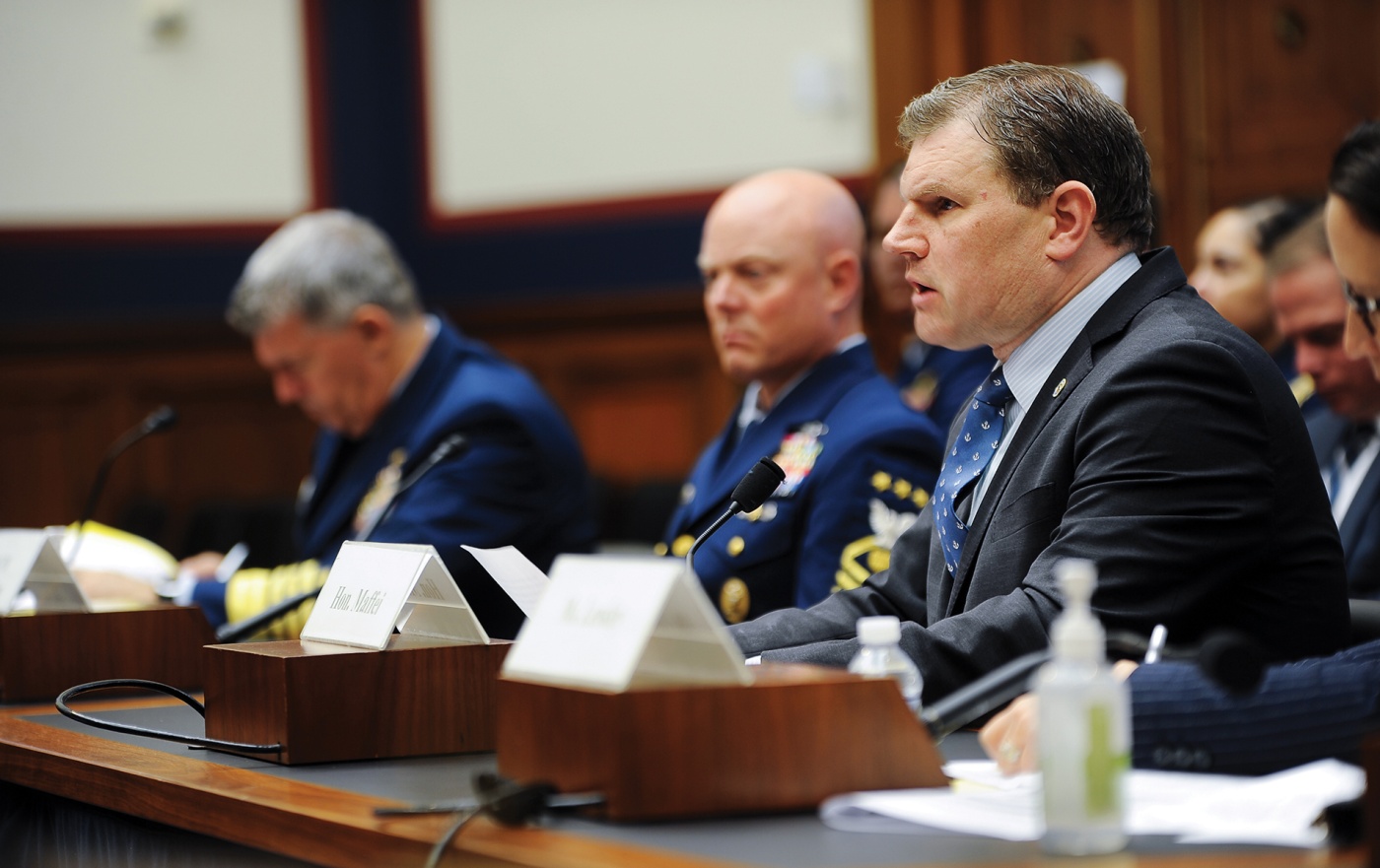Before the COVID-19 pandemic struck in 2020, most consumers didn’t know how the global supply chain worked—and didn’t care. But when confronted with empty superstore shelves and rising prices, the American public suddenly wanted answers.
This is arguably the job that Dan Maffei ’90, a down-to-earth yet slightly wonky ex-congressman who is now the top U.S. shipping regulator as chair of the Federal Maritime Commission, has been preparing for all his life. Suddenly thrust into the public eye while the man who put him in the post—President Joe Biden—rails against the greed of multinational shipping firms, Maffei is relishing a chance to prod the key players at America’s ports to speed things up while also urging consumers to show some patience during a once-in-a-lifetime public-health crisis.
“A lot of what I do is explaining to the public, the media, and Congress just how the supply chain works,” Maffei says by phone from his D.C. office, where he heads the five-member bipartisan commission. When he’s not in D.C., he’s off to Long Beach or Newark, pushing for more efficiency to help end the lengthy backlog of containers from China or elsewhere that carry so much of what Americans buy.
In a sense, Maffei has been looking for a role that merged his dual passions for communications and for making better public policy ever since he arrived on the Brown campus from his native Syracuse, N.Y. He credits a talk by the late Harriet Sheridan, then dean of students, for making him focus on the skills needed to get ideas across. “The first big speech was, ‘This is what you need to learn: How to write,’” he recalls. “I guess I took it seriously.”
That new motivation took Maffei to a radio reporting gig with WBRU and then to TV news back in upstate New York. But his studies at Brown with renowned education-reform expert Ted Sizer also interested him in how knowledge gets translated into effective policy. That notion inspired him to cross over and work as an aide to senators Bill Bradley and Daniel Patrick Moynihan in the late 1990s, and eventually serve two nonconsecutive terms in Congress himself, as a Democrat from a highly competitive district that includes Syracuse.
To say that Maffei doesn’t miss an increasingly partisan Capitol Hill would be an understatement. “Nothing cures your political ambition issue more than two terms in the House of Representatives,” he laughs. He had no background in maritime issues when then-President Barack Obama first named him to the five-member commission in 2016, but he has thrown himself into the mission.
Since becoming chair in March 2021, Maffei has found himself at times caught between Biden—who has called shortages caused by the supply chain “outrageous”—shipping conglomerates who say most of the issues are beyond their control, and frustrated consumers. He notes that some solutions, like increasing competition, could have unintended consequences including more pollution.
Maffei said he hopes America will emerge with “a supply chain that is more understandable, more reliable in that there are some redundancies built in, and more...transparent.” He pauses, then adds: “But even I don’t think everybody needs to know about it.”





